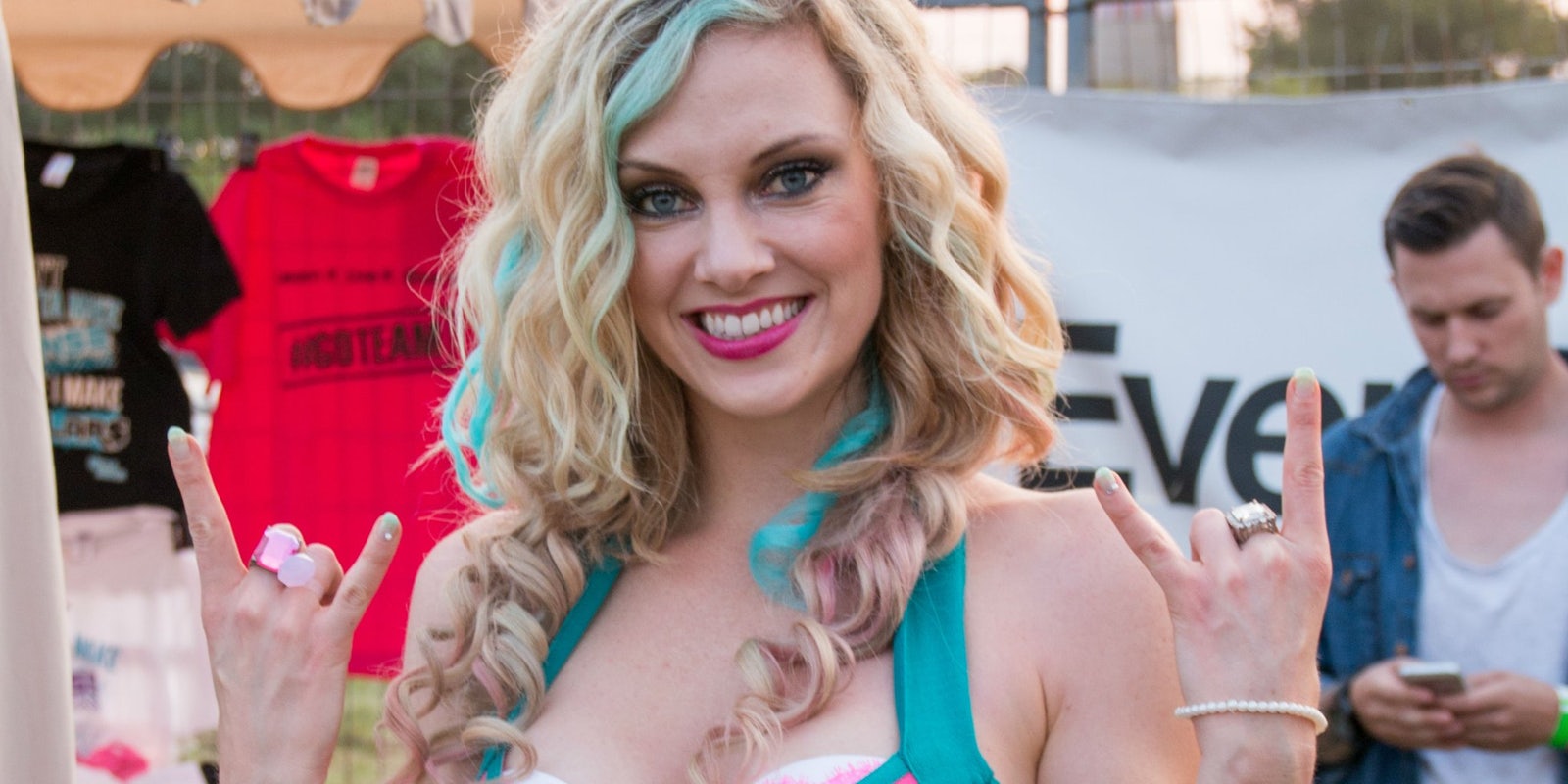Nicole Arbour, the woman who unleashed the viral YouTube video “Dear Fat People” on the world last September is back with a sequel that is somehow worse than the original. “Dear Fat People 2: The Second Helping” dropped over the weekend, and while it hasn’t quite taken off the way the original did, it’s still racked up over 440,000 views.
Arbour’s language is inflammatory, sexist, fat-shaming, transphobic, and overall sincerely disrespectful. There’s no debating the fact that she’s not winning awards for being woke anytime soon. She makes no secret of her disdain for anyone who doesn’t fit society’s traditional standards of beauty.
Her trolling is off-the-charts ridiculous—and at this point she’s only trolling herself. But if we look past her incendiary antics and at her message, there are serious issues not only with the content, but with the way she’s framing them.
If there’s anything in her over-produced rant that has a glimmer of truth to it, it’s the economic critique of marketing towards women.
Arbour’s critique fails not only when she fails to acknowledge the false choice between a message and a career, but also when she does not acknowledge the real ways that Graham has been an inspiration to and supportive of women who participate in the body positivity movement.
Around the three-minute mark in the sequel video, Arbour says that plus-sized model Ashley Graham did not pose for Sports Illustrated’s swimsuit purely to represent plus-sized women, but rather to support her career as a model. Of course Graham makes money from modeling, but having a job and a message are not mutually exclusive.
Of course, Arbour’s critique fails not only when she fails to acknowledge the false choice between a message and a career, but also when she does not acknowledge the real ways that Graham has been an inspiration to and supportive of women who participate in the body positivity movement.
Arbour is not necessarily wrong when she notes that a lot of brands have much to gain financially by affiliating themselves with body positivity. It’s not wrong to point out that there a lot of people who have a lot of money to gain by embracing body positivity, even if they themselves are not supportive of the movement.
But where Arbour fails to adequately defend the one piece of her argument that has some legitimacy, is when she ignores the fact that she herself is engaging in the same kind of self-promotional antics that she accuses Graham and others within the body-positive community of employing.
“She’s not representing women! She’s representing her bank account!” Arbour ranted about Graham. Well, that’s all Arbour is representing, too.
She said herself that her first viral video “Dear Fat People” was in fact a marketing ploy, and it’s supremely unlikely that her follow-up aims for a different result. Arbour is using a “message” about the “perils” of body positivity to earn money, and has been upfront about it. Just as Graham would probably own up to the fact that she has a message that she simultaneously profits from as well (being a model is her career, after all).
“Clearly Sports Illustrated put her in it,” Arbour rants, “because it would cause a controversy and people like me would talk about it right now.” Then she ironically cuts to her re-enacting someone reacting to her own video. Arbour talks at length about how her own acknowledgement that she photoshops her own pictures means that she’s above Graham, whose Sports Illustrated spread was surely touched up, but somehow misses the point that, even if the magazine’s sole goal for including Graham was to stir the pot, Arbour is doing the exact same.
This is what we can expect from body-shamers, anti-feminists, and LGBT-phobic who make no effort to hide their hatred for marginalized groups when they label it as “comedy.” Arbour will probably never acknowledge the hypocrisy of her message, but hopefully the rest of us will continue to see through it.
Elizabeth King is a Chicago-based writer covering news and politics. She also enjoys writing cultural criticism and pop culture analysis. Follow her on Twitter @ekingc.
Photo via Tabercil/Wikipedia Commons (CC BY 3.0)


